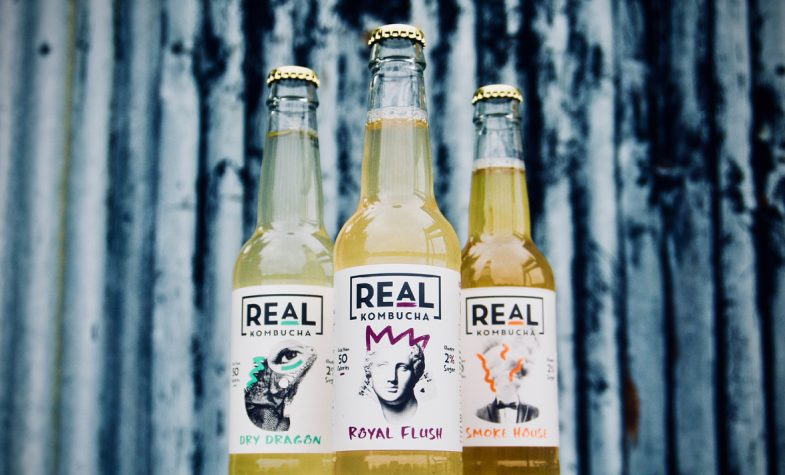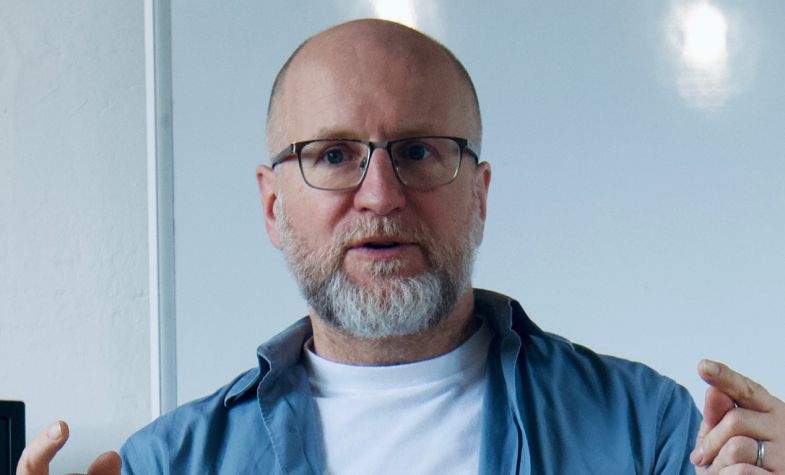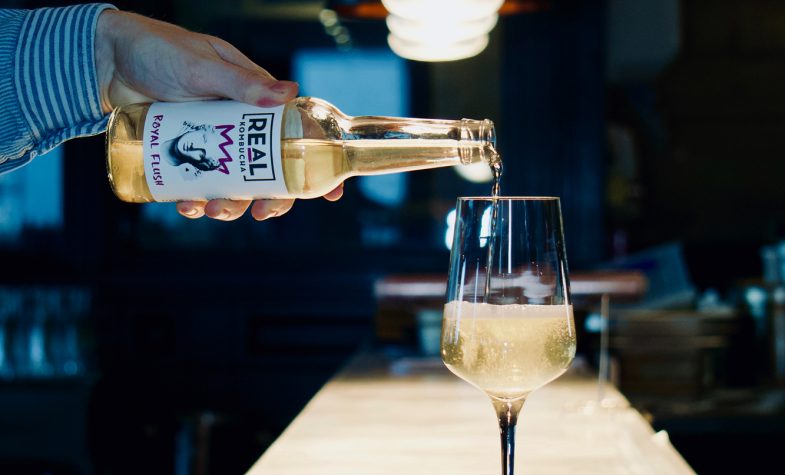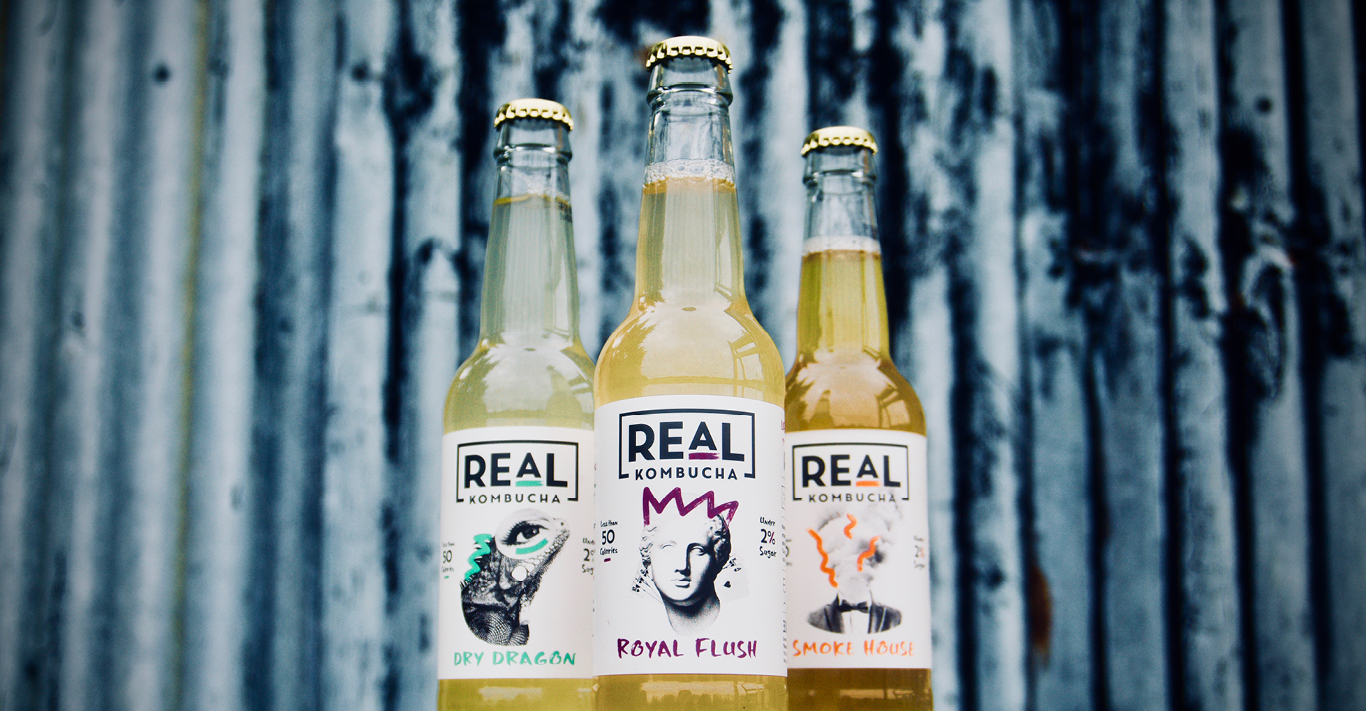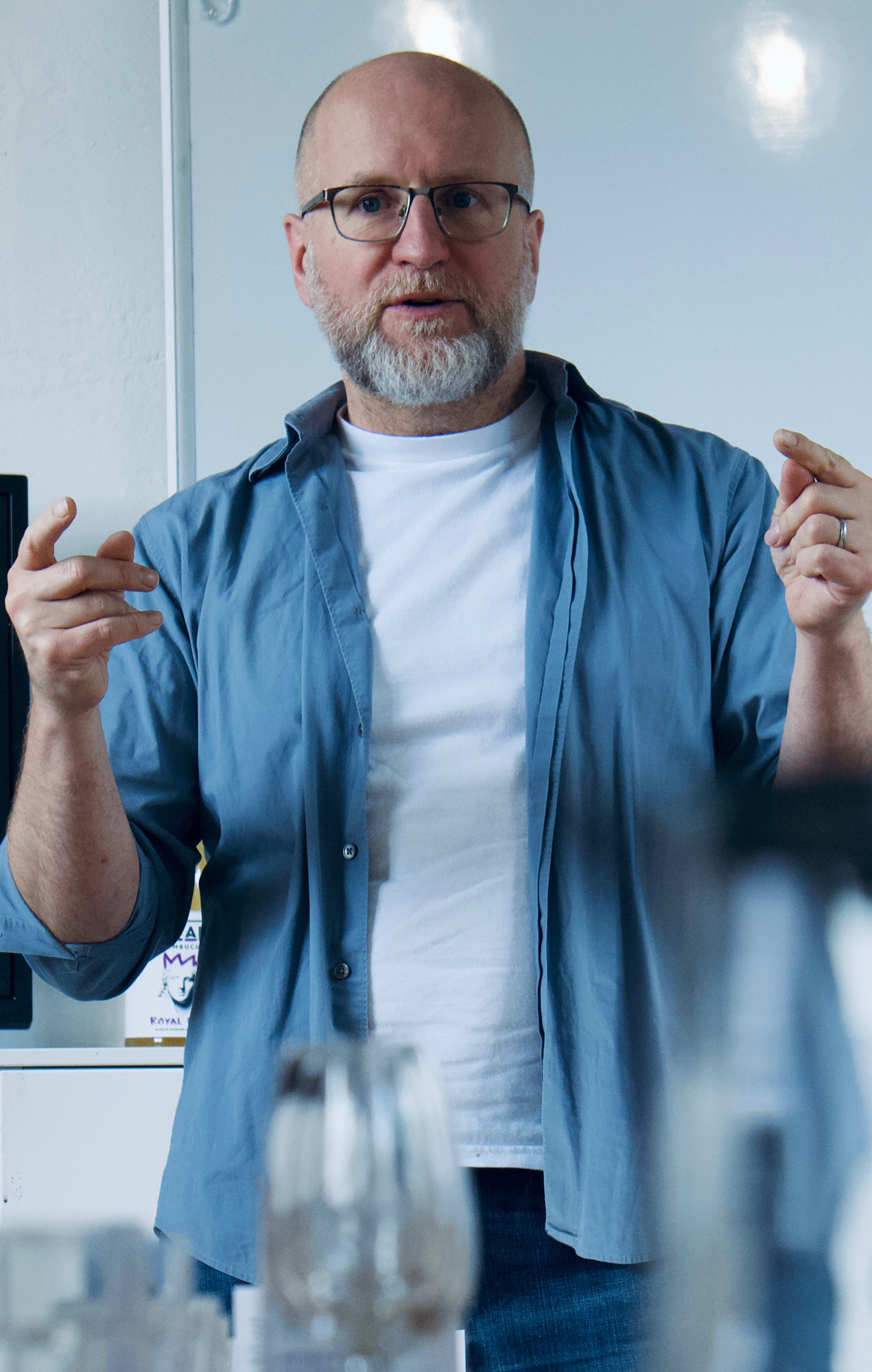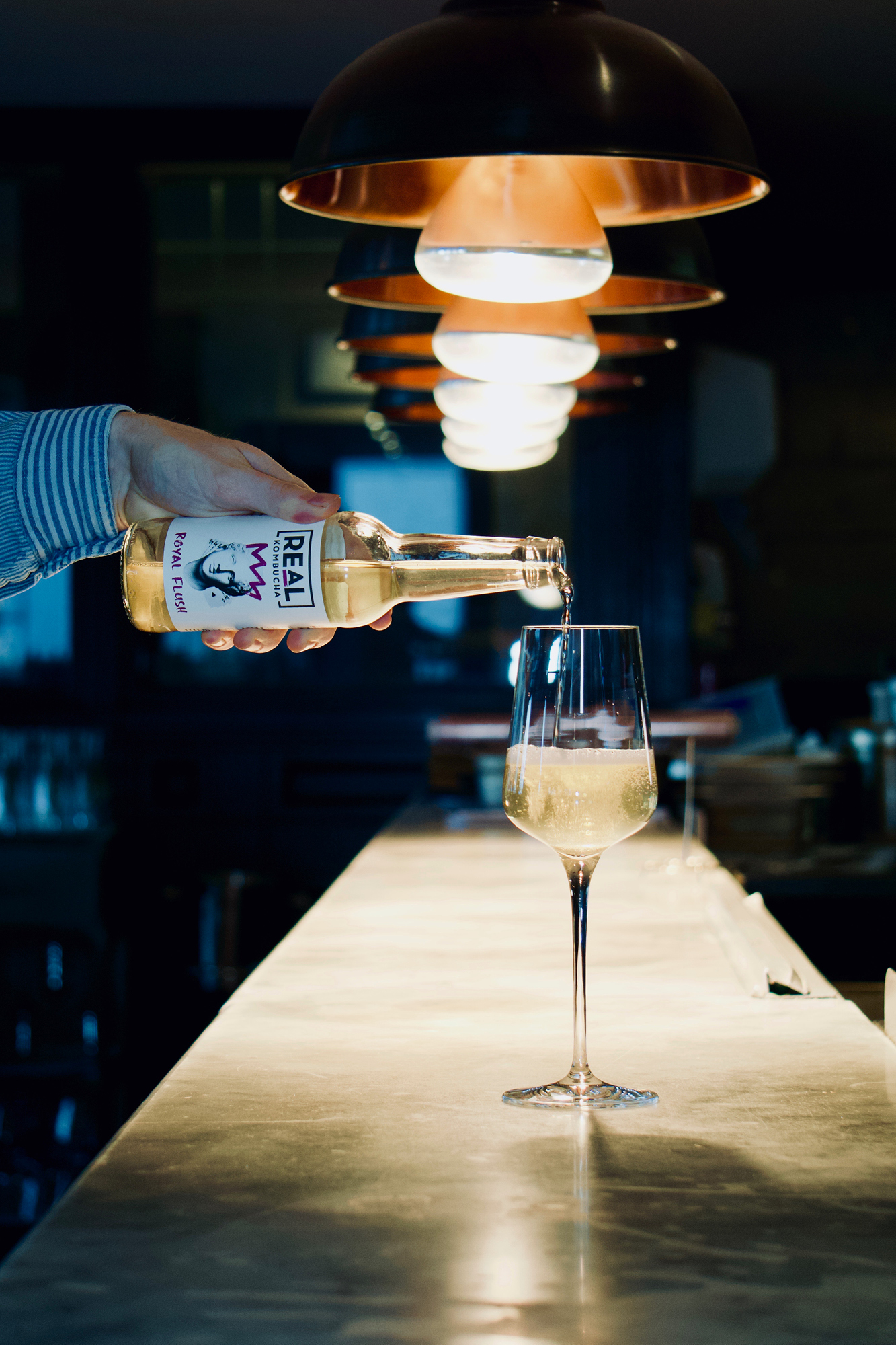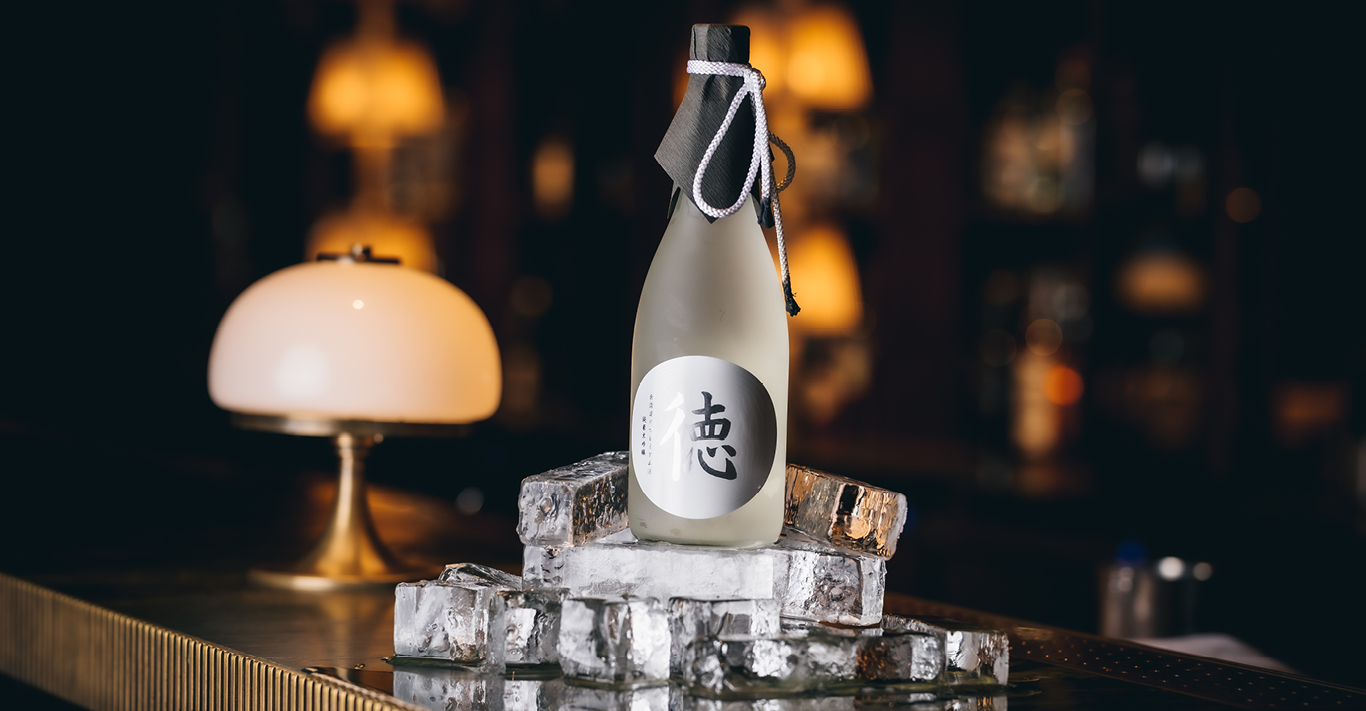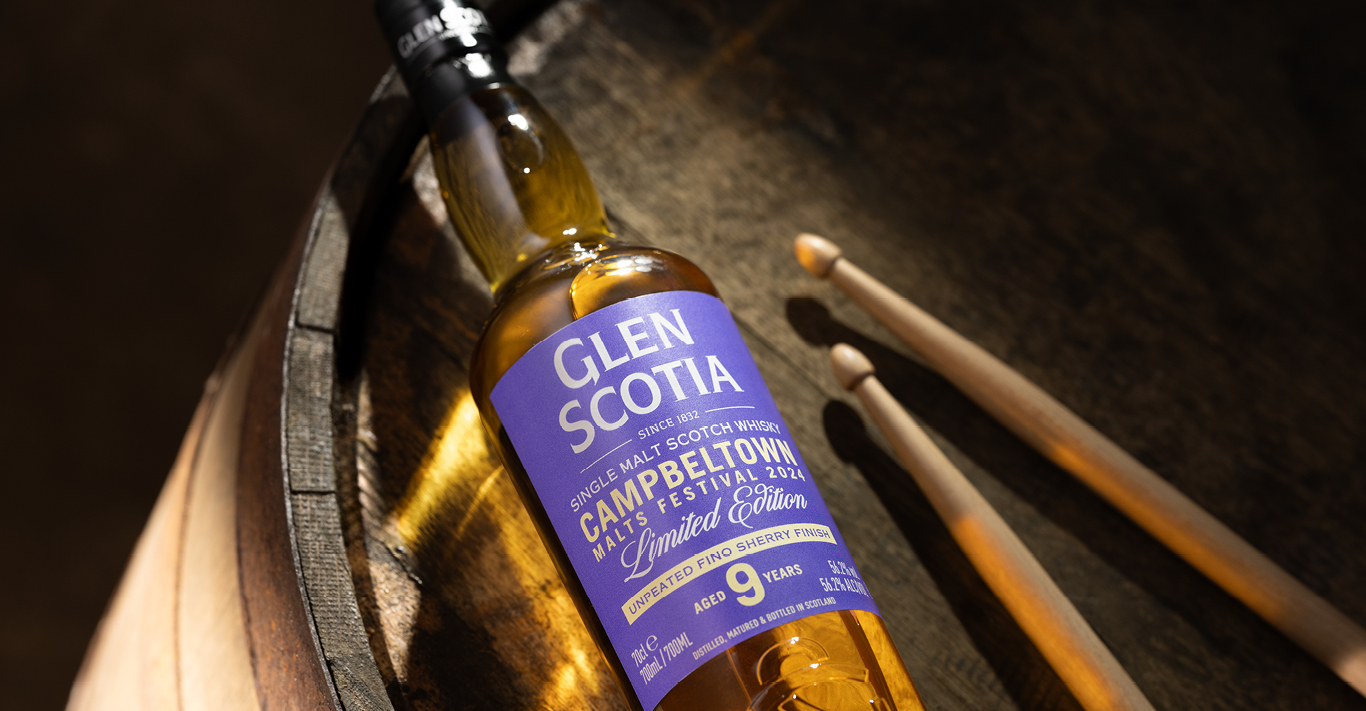David Begg is the founder of Real Kombucha. He founded the company after he gave up drinking but was frustrated by the limited choice of sophisticated, complex options for non-drinkers. After studying engineering at university, Begg was part of the founding team of the site that became booking.com, founded furniture brand Tom Dixon and education tech company Magic Town before launching Real Kombucha in 2017. Here he describes how, within two years, Real Kombucha has worked to become one of the pioneers of the sober movement and is working to change attitudes towards alcohol, in addition to becoming a leading authority on brewing and fermentation.
I got into kombucha because I quit alcohol eight years ago. I used to be really into wine and whisky, I even had a collection of whiskies and when I first quit alcohol it was a struggle because I love to cook and eat good food. Sitting down to eat with sparkling water is just boring and I won’t drink soft drinks or juice with food as it kills the flavour.
I first tasted kombucha when a friend was brewing it at home – it was pure and simple, a great brew. My reaction was ‘Oh my god, I can’t believe that’s not alcoholic’. And then ‘this should be on tap in every pub in the country’. I took a culture home from him straight away and, though I knew nothing about kombucha, I started brewing at home. One of the first I brewed was from an exquisite silver needle white tea, which I brew to give me notes of vanilla and almond, it was better than any champagne I have ever tasted: very delicate and with very aromatic flavours.
My entry to kombucha therefore wasn’t the usual one of being presented with a gut-health flavoured soft drink like it is for a lot of people, it was: ‘Wow, what can I do with this?’ I started experimenting with it like it was wine to get different finishes and flavours.
At Real Kombucha we now brew with between 150-200 teas whereas most kombucha is made with a basic green mix or black mix and then you add flavour. I approach it entirely in the way of getting different flavours from different teas. At the beginning I was adding all kinds of different flavours like ginger or cardamom but my business partner John pointed out that we were getting incredible flavours just from the tea. You wouldn’t stick ginger in good champagne, so why add it to our brew?
The unfortunate thing is that a lot of the flavours of kombucha on the market are covering the paucity of the fermentation – they are making what is basically a big home brew – but if you really concentrate on the fermentation process, you can create exquisite flavours and don’t need to add flavouring, just like with wine.
It took a lot of research: we go down to the level of DNA testing our cultures, so we know the metabolism of the bacteria within our cultures exactly, just as a winemaker does. Our head brewer is a microbiologist for that reason. We have done an enormous amount of testing on the teas we brew with on how we develop and propagate our cultures to get the consistent flavours we’re looking for.
Alcohol has no flavour to it, all of the complexity in wine or whisky is a by-product of the fermentation process. And there is no difference to what we’re doing except that there isn’t alcohol in the final product. Also, grapes have natural sugars but we have to sweeten our teas to give us the carbohydrates for fermentation.
I’ve built my knowledge of teas over the past four or five years. We’ve been working with a gentleman called Will Battle, one of the world’s experts on tea who wrote The World Tea Encyclopaedia and he acts as our tea merchant: provides us with samples and is constantly educating us.
We only work with exquisite loose-leaf teas and we put them into our steeping tank at a very fixed, regulated temperature, which is different for each tea. One thing I’ve learned is that you should never brew tea at 100 degrees – you get a lot of tannins and astringency – so we brew it below that temperature to get the smoothest flavour. We then sweeten the tea with sugar sourced from the UK before putting it into a cooler and then a big fermentation tank and add our culture to it.
You need to be very careful about the development of these cultures because if the culture is good then the final brew will be great. If the culture is poor then there is no way, whatever you do, to get a good fermentation. We call all of our cultures our ‘old mothers’ and they are named after strong women including Jane Austen, Molly Weasley and Leda, as in the mother of Helen of Troy. It has significance for us as it reflects the respect we have for the culture we’re developing.
We then ferment from anywhere from two to eight weeks – this is something what I call ‘supermarket kombucha’ isn’t doing, most of them are fermenting for about seven to eight days – a fast ferment, which produces fast acidity and ruins the flavour. There is a certain level of carbonation that comes through in the fermentation itself but we then top it off with some additional carbonation to make it lightly sparkling.
The way kombucha is served is really important to us. I get mad when I walk into a place and they serve it with ice in a tumbler. Why would someone immediately assume that because it’s not alcoholic that I would want ice and a slice of lemon, to be treated like a child? I want the same quality of serve as anyone drinking alcohol.
It’s a fascinating observation of society and our approach to alcohol but I think it’s changing and changing fast. We launched at the end of 2017 and even then it was difficult to get pubs and bars to think about non-alcoholic serves. But just a year later most bars and alcohol brands were panicking about making sure they had something for people who don’t drink. According to YouGov around 30 per cent of the UK population is now teetotal and 35 per cent of 16-24 year olds are teetotal, which is staggering. I’ve worked in consumer businesses for a long time and this is a pace of change and a trend I have never seen before.
Real Kombucha is really the only kombucha in Europe focusing on being a champagne or sparkling wine replacement. We’re in 60 Michelin-star restaurants in the UK and we’re starting to enter other international markets too. We’re in many top hotels, cocktail bars, national and regional pub chains as a sophisticated non-alcoholic alternative. We’re really lucky to have the patronage of The Fat Duck. I met Melania Bellesini, the sommelier at The Fat Duck at a restaurant show and she has been incredibly important to our journey because she said to me at the time: ‘You have one of the best non-alcoholic drinks I have ever tasted.’ And it gave us the confidence to work at that level and explore the higher end. At the start we were thinking east-London pubs and bars but now we’re the mainstay of the non-alcohol pairing menus in a lot of the top restaurants who would say we’re working in a white space: I’ve searched for other options but after looking for a long time I think we’re the only no-alcohol drink that pairs well with food.

